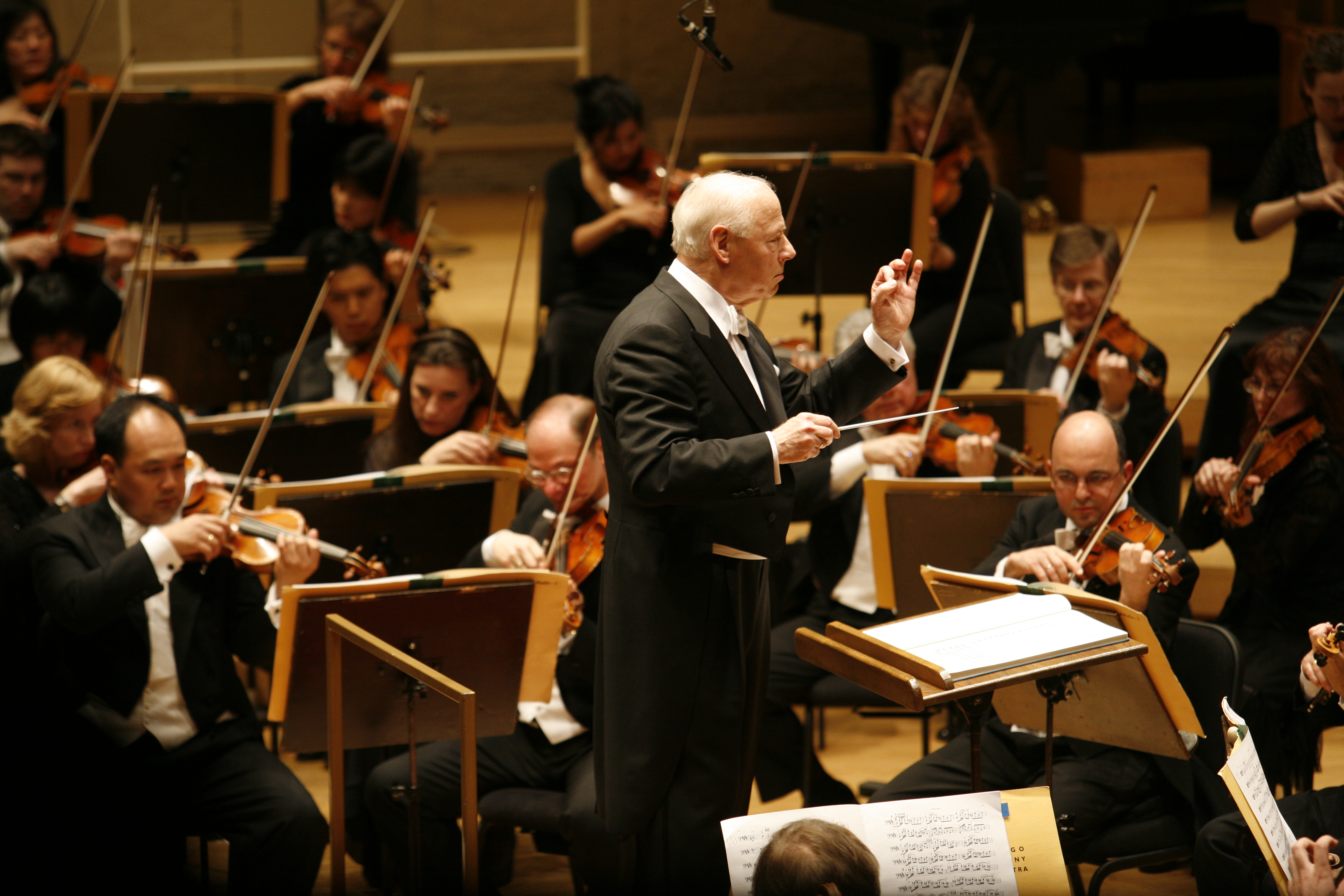Refined Mahler from a Dutch master
CHICAGO: Like many a top-tier American ensemble, the Chicago Symphony Orchestra has seen significant evolution in the last decade. Yet even with several key personnel changes over Daniel Barenboim’s 15-year reign, the supreme gleam and corporate virtuosity of the CSO remain undimmed.
With the considerable coup of having nabbed Riccardo Muti as the orchestra’s tenth music director, effective with the 2010-2011 season, it has fallen to several top podium guests to fill the void in the interim. Foremost among them is Bernard Haitink, who led the orchestra in Mahler’s epic Symphony No. 2 last Thursday night.
Appointed principal conductor in 2006, the venerable Dutch conductor has built a strong artistic relationship with the CSO in recent years, his taste and rock-ribbed musical integrity coming as a relief, apparently, after some of the more wayward interpretations of the Barenboim era.
The Resurrection is scored for huge forces, and a prime example of Mahler’s singular brand of unconstrained, Late Romantic Catholic humanism. The symphony, a kind of non-doctrinal musical allegory, reflects the concept of life after death on the largest scale.
The dramatic opening movement spans a half-hour alone, followed by a pastoral Intermezzo, and a more biting, ironic Scherzo. A female soloist sings O Roschen Rot (Oh, red rose) from Mahler’s Des Knaben Wunderhorn as a bridge to the theatrical, frenetic finale, complete with offstage brass and the terror of the Day of Judgment. An eerie quiet leads to the final section, and consolation grows into increased confidence in life after death, the music building to massive affirmation, two soloists, chorus, organ, and orchestra soaring in the final bars.
Mahler’s grand symphony and scale virtually invite conductorial misbehavior, or at least, a selective wallow in volume and extremes.
That is not Haitink’s style. At times, the conductor’s objectivity and lack of idiosyncrasy can morph into a stolid quality, but there was no lack of excitement in this performance for all of its scrupulous control.
Rarely will one hear such wild, unhinged music performed with such dexterous balancing and attentive dynamic marking, the playing as refined and elegantly pointed as in a Mozart symphony. Haitink opened the vast, eighty-minute journey with a patient, spacious first movement, the music laid out in perfectly blended detail yet managing to proceed naturally without sounding pedantic.
If some of the Mahlerian vulgarity was smoothed over, there was ample compensation in the subtler pages of this often unsubtle music: the gentle reverie of the opening movement’s second theme, and the feather-soft string playing in the Intermezzo, with the hushed coda delightful. The vast final movement was alertly charted by Haitink, proceeding fluidly from funeral march to Apocalypse, mystery and inexorable joyous abandon.
Perhaps the most impressive quality in an orchestra with such a venerable Mahler tradition as Chicago’s, is the ensemble’s flexibility. Haitink’s refined approach to Mahler is worlds removed from Sir Georg Solti’s whipcrack vehemence and aggressive bravura. But so responsive and beautifully turned was the orchestra’s playing Thursday it had one convinced that Haitink’s delayed gratification was the more successful way.
The CSO’s’ power and brilliance remain a wonder, even with one trumpet player having an off night. Riches abounded as with the lilt of the cellos in the Intermezzo, the alertly calibrated, dynamic marking across all sections, the sepulchral rounded trombone solos of Jay Friedman and Dale Clevenger’s extraordinary horn work. When the four offstage horns join their seven onstage colleagues for the final bars, the sonic impact was all the more thrilling for Haitink’s patient direction and lack of bombast.
Mezzo Christianne Stotijn and soprano Miah Persson fulfilled their brief but important roles deftly, Perssons’s pure radiant tone, in particular, well suited to the hopeful text. The glorious ensemble singing of the Chicago Symphony Chorus, under Duain Wolfe’s direction provided the requisite corporate vocal lift to the heaven-storming finale.
It will be fascinating to hear what Muti will accomplish with the same forces when he conduct’s Verdi Requiem in January, his sole Chicago appearance this season.
312-294-3000; www.cso.org
[Photo by Todd Rosenberg.]
Posted in Performances
2 Responses to “Refined Mahler from a Dutch master”
Leave a Comment
Tue Nov 25, 2008
at 5:51 pm
2 Comments

Posted Nov 25, 2008 at 11:15 pm by Sharon McDaniel
Larry, thanks for the update on two of my favorites: Haitink and the CSO. It’s been a long time since I heard the Chicagoans in Orchestra Hall — you’ve reminded me beautifully of what I’ve been missing!
Posted Apr 30, 2009 at 12:44 pm by Gerd Schidlewski
I am very happy that I got a ticket for a concert of the CSO with Bernard Haitink in Berlin in September as I am a great admirer of the orchestra since the days of Fritz Reiner.